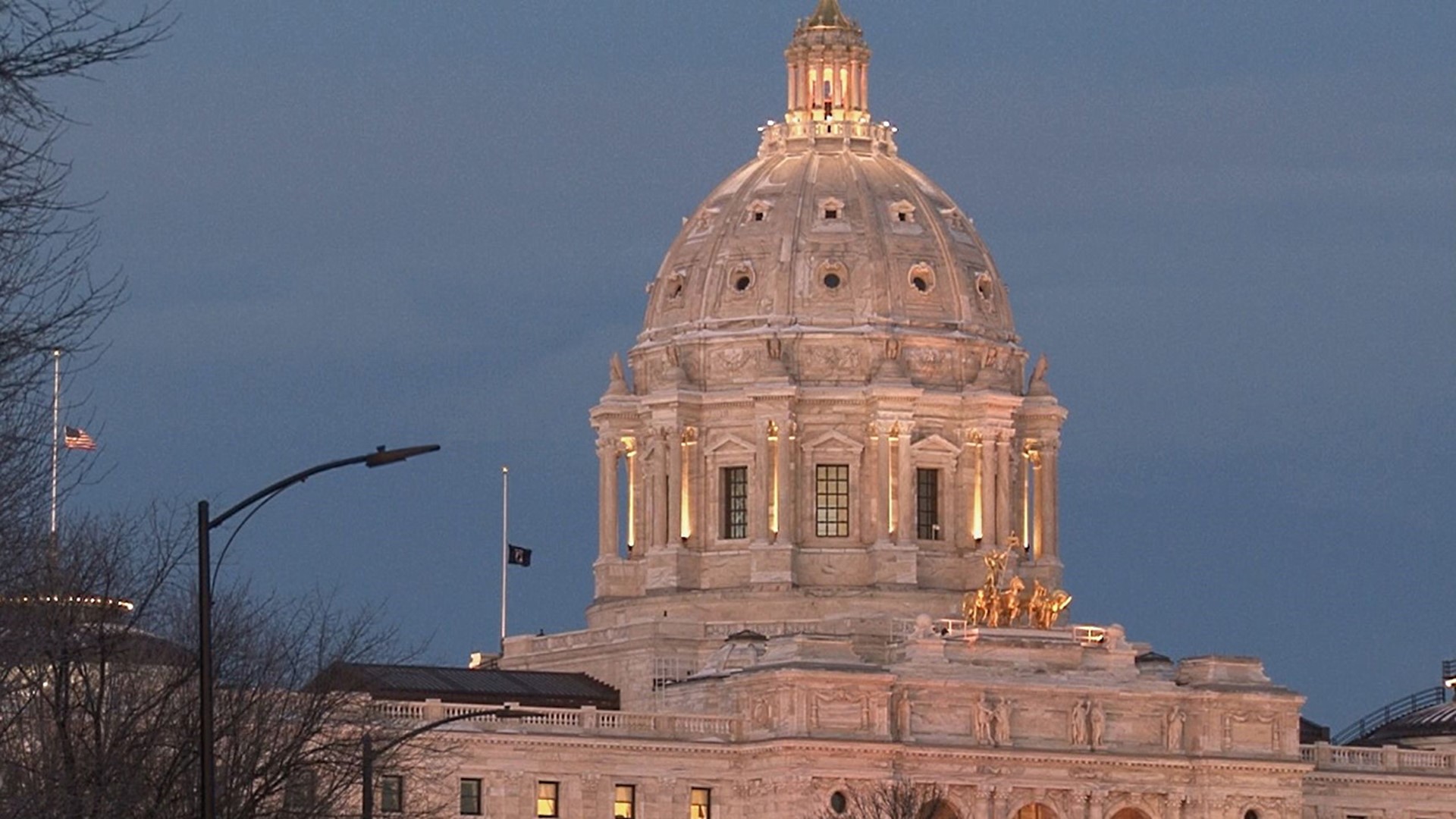ST PAUL, Minn. — Minnesota lawmakers return to the state capitol Tuesday after the traditional Easter-Passover break, with a sizable list of major initiatives still caught up in the partisan divide.
The House, Senate and Gov. Tim Walz have until May 23rd to hammer out some deals or risk going into the campaign season with huge issues left on the bargaining table.
At the top of the list is dealing with the state's record $9 billion surplus, which may be even higher in reality due to the latest quarterly tax revenue report.
Senate Republicans want permanent tax cuts for everyone, by cutting in half the state income rate joint filers pay on their first $41,000 of earnings. They'd also like to exempt all Social Security benefits from state taxes. All told, the GOP plan would take $8 billion out of the state treasury across the next three years.
House Democrats, on the other hand, want targeted tax credits for middle class families. It would create savings through higher property tax refunds, renters refunds, child care tax credits and lower co-pays on prescription drugs. The House tax plan would make Social Security benefits tax exempt for those with incomes below $75,000.
The House plan would cost $1.6 billion over the next two years, and $1.2 billion every two years after that.
Governor Walz favors one-time rebate checks of $1,000 for joint filers and $500 for single filers. He also wants to see large investments in public schools and aid to cities for public safety.
Lawmakers passed a balanced two-year budget last session, so there's no threat of a state government shutdown. But it would also be politically risky to end the session the state's coffers still bulging.
Gov. Walz has recently expressed optimism that legislative leaders can reach an agreement to return at least part of the surplus to taxpayers, and also increase spending where it's needed to help families recover from the hardships they endured in the pandemic.
"In the financial position we’re in, we’re in a strong position to lower taxes on the middle class, to make sure we take care of our small business with the U.I. Trust Fund, that we take care of public safety, we invest in education, and we take care of a bonding bill," Walz told reporters Friday during an event in Hastings.
"When you hear those things said like that there’s not a whole lot of political, ideological difference on all of that. We all have plans and we’re not going to get it all, but I’m still very hopeful."
Senate Republicans and House Democrats are also moving in different directions on a variety of other issues, including:
- School funding
- Public safety
- Unemployment insurance trust fund
- Frontline worker bonuses
There's a lot of pressure to pass a public works construction bonding bill, which the legislature normally gets done during even-numbered years.
Those bonding bills normally combine general obligation bonds, which is a form of long-term borrowing, and one-money from the state's cash accounts. They regularly add up to $1 billion, with the money divided among dozens of vetted projects picked from hundreds of requests for construction projects.
Different approaches
There appears to be agreement on both sides of the aisle over signing and retention bonuses to help with police recruitment. And there's general agreement to send money to departments for investigations and technology.
The House also wants to put money into community groups that work to help intervene in violence and interrupt patterns of violence in coordination with law enforcement.
The Senate has rejected that approach and, in contrast to the House, is attempting to raise penalties for violent crimes and require prosecutors to explain when they don't prosecute someone to the fullest extent of the law.
The Senate wants to send $2.7 billion of the surplus into the Unemployment Insurance Trust Fund, which was depleted and went into the hole due to high jobless claims during the COVID pandemic. That would take the UI Trust Fund back to where it was before the virus hit.
The House, by contrast, wants to put $1.2 billion into the UI Trust Fund, which would get it out of the hole but wouldn't add reserves. The fund would start to build again by employer and employee payroll deductions that existed before the pandemic.
Because the U.I. Trust Fund issue wasn't settled by March 15, higher rates kicked in for businesses. House leaders say that can be retroactively undone after there's an agreement on the larger overall spending plan.
Democrats want to plug $1.15 billion more into public schools in the current budget cycle, plus $2 billion in FY 2025-2026. Of that $475 million would go school mental health resources.
Republicans have budgeted $30 million more for public education, earmarked for a child literacy program. They assert there's no need to make major investments in K-12 education this year because local schools received a 2% increase in per pupil aid in last year's budget.
Watch the latest political coverage from the Land of 10,000 Lakes in our YouTube playlist:

